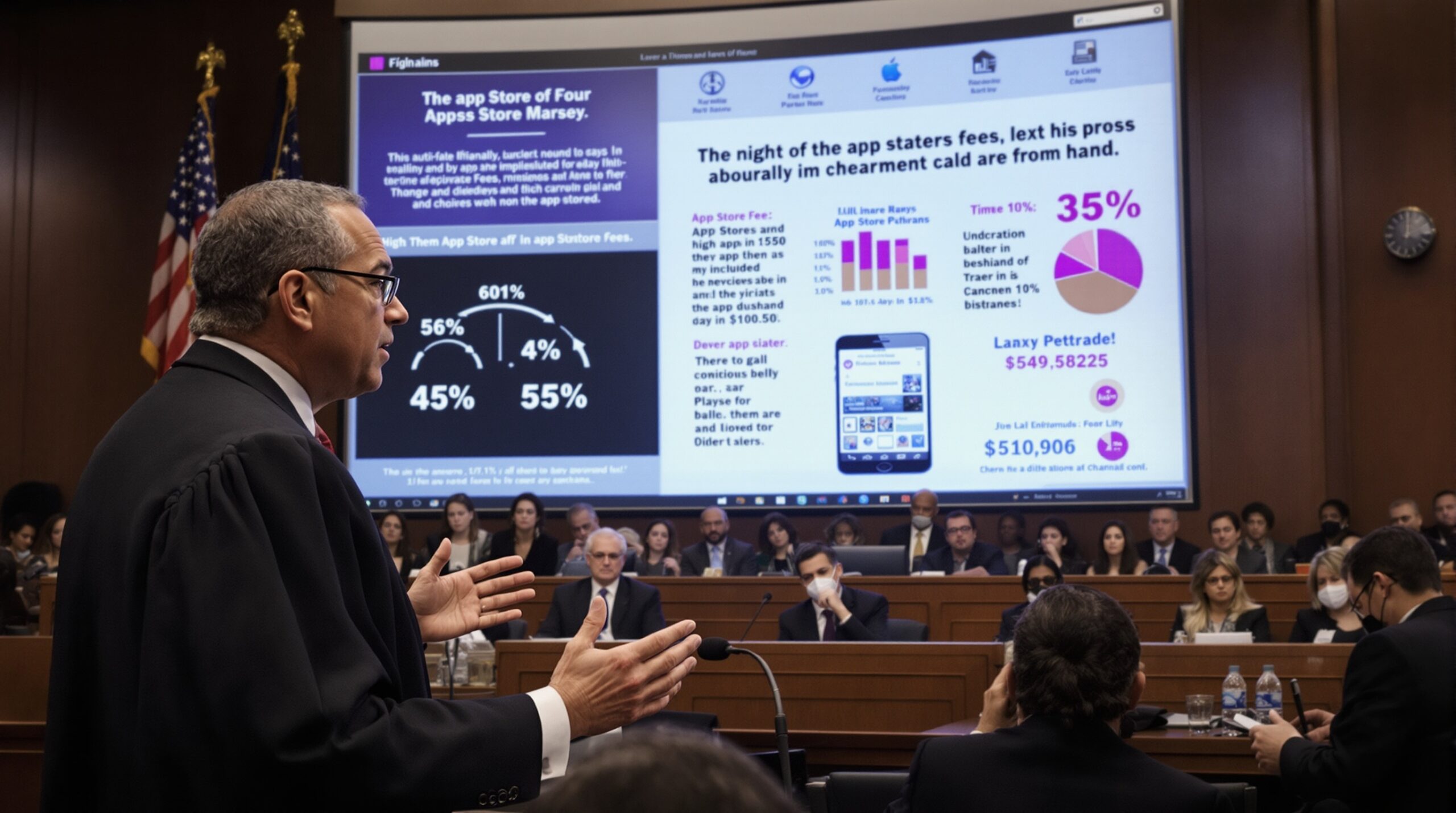A major antitrust lawsuit is challenging the business practices of a leading app store. The case specifically targets the fees required for app developers to participate on the platform. This legal action could have far-reaching consequences for the technology sector and millions of users worldwide.
The Allegations at the Center of the Lawsuit
Plaintiffs in the case argue that the dominant app store charges excessive fees to developers for app sales and in-app purchases. According to the complaint, these fees create an unfair playing field and limit market competition. Developers claim that the fee structure undermines smaller businesses, unable to sustain the high cost of entry.
The legal argument rests on antitrust laws designed to prevent monopolistic practices. Plaintiffs assert that the app store uses its power to suppress alternative payment methods and app distribution channels. The company allegedly forces developers to use its own payment systems, which also incur high fees.
How App Store Fees Impact Developers
The dominant app store typically charges developers a commission ranging from 15% to 30% on all transactions. For startups and small businesses, these fees represent a significant portion of total revenue. Some companies report they have been forced to raise their prices or cut costs elsewhere to survive.
Developers also allege that the fee policies stifle innovation in the app marketplace. Many feel discouraged from exploring new business models or releasing updates to existing apps. Critics suggest that high fees ultimately reduce consumer choice and diversity in available applications.
The App Store’s Defense and Rationale
The app store operator insists that its commission structure ensures both security and quality for consumers. Company representatives argue that collected fees go toward moderation, system infrastructure, fraud protection, and customer support. They believe these services are essential for maintaining a healthy platform.
The operator also claims that the fee structure incentivizes investment in new technology and developer tools. According to company statements, their policies create a safe and reliable ecosystem for both developers and users. Furthermore, they contend that alternative payment and distribution models could expose users to greater risks.
Legal Arguments and Antitrust Implications
Legal experts are closely watching the case to determine whether the app store’s practices violate antitrust statutes. Central to the lawsuit is whether the company unreasonably restricts competition through its control over distribution and payment processes. Plaintiffs are requesting the introduction of alternative payment systems and distribution platforms.
The outcome could influence how courts interpret monopoly power in digital marketplaces. Some specialists suggest that if the court rules in favor of the plaintiffs, it could open the door for further regulation. This ruling might also affect other leading digital platforms with similar business models.
Potential Changes for the App Marketplace
If the lawsuit succeeds, app store operators may have to revise their policies and lower commission rates. They could also be required to offer more flexible payment processing options. These changes would make it easier for developers to bring applications to market, encouraging more innovation.
Consumers could ultimately benefit from increased competition and reduced costs in the app marketplace. Greater choice and improved pricing structures might result from developers’ ability to use third-party payment systems. App stores may also be compelled to enhance transparency about their fee structures.
Industry Response and Stakeholder Reactions
Many app developers and consumer advocacy groups support the lawsuit, seeing it as a chance to rebalance industry power. Technology companies and trade associations have issued statements applauding legal efforts to break up what they see as excessive control. Some investors believe the case could mark a turning point in digital platform regulation.
On the other hand, several large technology firms warn that sweeping changes could disrupt industry stability. These companies emphasize the importance of maintaining strong security and oversight standards. They fear that loosening platform controls may jeopardize user safety and increase exposure to malicious software.
Global Context and Parallel Legal Actions
This lawsuit comes amid broader global scrutiny of digital marketplaces and their fee structures. Similar cases are unfolding in the European Union and Asia, where regulators have investigated large app stores for anticompetitive behavior. These international efforts seek to establish fairer terms between developers and technology giants.
Governments across the globe are considering or enacting regulations to ensure greater competition in the app economy. They aim to prevent the formation of monopolies by increasing transparency and access for smaller businesses. Some jurisdictions have adopted legislation requiring platforms to accept alternative payment methods.
The Road Ahead: Legal and Market Implications
While the outcome of the lawsuit remains uncertain, the stakes are high for all stakeholders in the ecosystem. A ruling favoring plaintiffs could set a major precedent, especially in fast-evolving digital markets. Conversely, a victory for the app store operator could preserve the status quo and reinforce existing business frameworks.
Either result will likely shape future relationships between app developers, platforms, and users. The case could influence upcoming regulations and inspire new industry standards worldwide. Both sides are preparing for a lengthy legal process with significant implications for the technology landscape.
Conclusion: A Critical Moment for Digital Competition
The antitrust lawsuit targeting dominant app store fees represents a critical moment for digital competition and market fairness. Developers, consumers, and regulators await the final verdict, which will determine how digital marketplaces function for years to come. This ongoing case may reshape the economy of the app world and influence innovation across the technology sector.
As the courts deliberate, all eyes remain fixed on the potential ramifications for platform power, app development, and consumer benefit. A decision in this case will undoubtedly echo throughout global technology markets.

